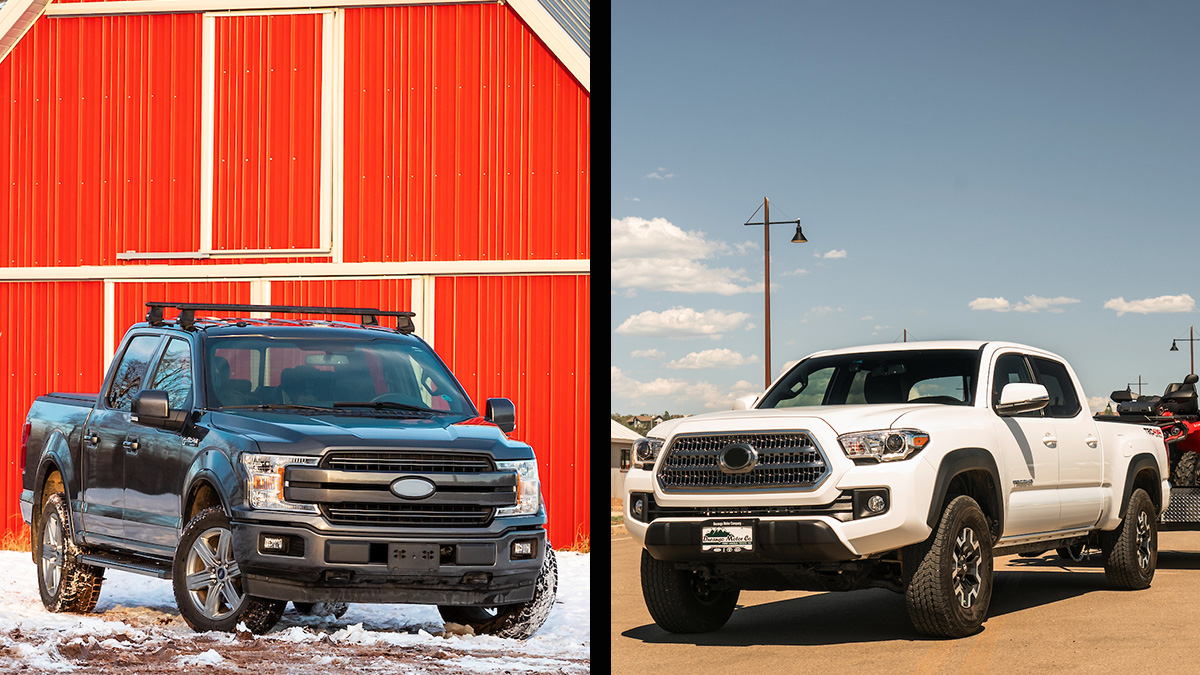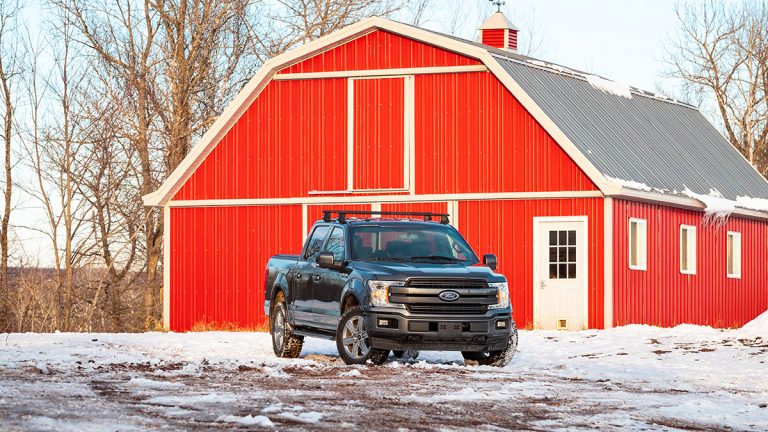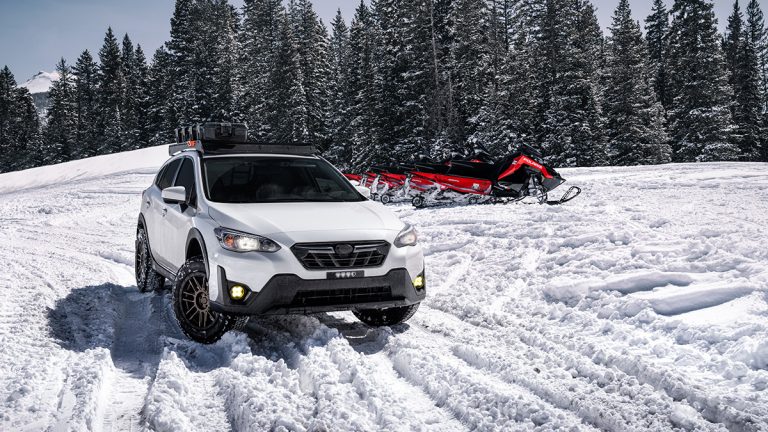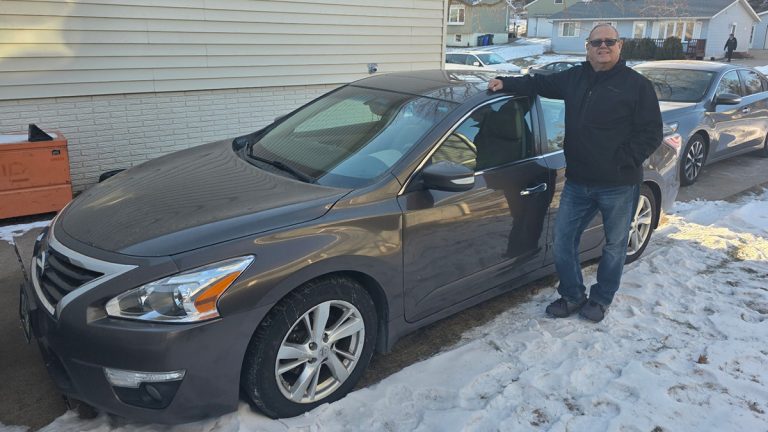This is the story about diesel vs gas engines: Diesel engines burn diesel fuel and gasoline engines burn gasoline.
The end.
Short and sweet, eh?
Actually, there’s quite a bit more to the story.
Different ways of igniting the fuel
Outside of fuel differences, the most notable difference between diesel vs gas engines is the way each ignites the fuel.
Diesel engines compress air in the combustion chamber until its temperature increases enough to ignite the fuel, which is sprayed into the combustion chamber by the injectors. Gasoline engines, on the other hand, use spark plugs that ignite a mixture of fuel and air at just the right time. In the engineering world, we describe the methods of ignition as compression ignition and spark ignition.
Diesels = more durable construction
Diesels are low-rpm, high-torque engines built to last much longer, in general, than gasoline engines. Engineers typically use bigger, heavier and stronger components since diesels are largely designed to work – and work hard.
It’s not uncommon to get 300,000 miles (483,000 km) out of the diesel engine in a turbodiesel pickup and 1 million miles (1.6 million kilometers) out of a diesel engine in an over-the-road truck. Impressive, but even more so when you consider those trucks are pulling or hauling heavy loads.
Modern diesel engines in turbodiesel pickups are typically rated at 400-plus hp and 900 ft. lb. torque. An over-the-road truck engine can make more than 600 hp and 2,000-plus ft. lb. torque. Those are huge numbers when compared to the typical big-block gasoline engine’s 400 hp and 500 ft. lb. torque. True, horsepower is similar, but diesel engines excel at producing torque. And if we know anything about pulling and hauling, torque rules.
Turbos and direct injection
So, we’ve established that the diesel engine is a big, bad, powerful long-lasting engine. But here are a couple more technologies that set diesels apart from gasoline engines.
Most diesel engines are equipped with a turbocharger and direct fuel injection.
Yeah, I know; you’re saying, “But wait…there are turbocharged, direct-injected gasoline engines out there, too.”
You are correct, but they’ve only entered the scene over the past few years. The turbocharger jamming more air into the cylinder and the injectors spraying fuel directly into the combustion chamber help accomplish a lot of things.
• Increased power
• Reduced emissions
• Better fuel economy
• Easy-to-control injection timing
Now you see why the gasoline-engine world is copying the diesel-engine world.
Diesel vs gas: why don’t we all drive diesels?
Right about now you’re asking, “Gee whiz, if diesel engines are so great, why aren’t we all driving diesel-powered vehicles?”
The answer is history and economy of scale.
Historically, diesels have a bad rep
Gasoline engines in general are much quieter, and most Americans enjoy listening to the radio in their vehicle without having to turn it up to blaring levels to drown out engine noise. Diesel engines have come a long way with recent technology to make them quieter. But it’s not likely they will ever be as quiet as gasoline engines.
Many people also still associate diesels with the sooty, smelly engines of years past. Thanks to modern exhaust treatment devices and the introduction of low-sulfur diesel fuel, today’s production diesels are much cleaner.
It’s hard to fit a diesel engine in a small car
Additionally, we are moving to smaller vehicles for improved fuel economy. It’s hard to take a large diesel engine and shrink it to fit today’s small vehicles.
Yes, some auto manufacturers are playing in this realm, but small diesel vehicles are fewer and more far between than their gasoline counterparts. Can you image trying to put a diesel engine into a Mercedes Smart Car? The engine would consume the car and you’d have to ride on the roof. A convertible of sorts, I guess.
So, there you have the major differences between diesel vs gas engines. Whichever you choose, make sure to protect your investment with AMSOIL synthetic lubricants.
Updated. Originally published Aug. 22, 2016.





I like the explanation, but not quite true about diesels in smaller cars. European manufacturers have been producing performance Diesel saloon cars for years.. Ford, VW, Mercedes, Puegot, to name but a few, even Toyota. They produced an awesome version of the Yaris with a Turbo Diesel power plant. I personally had a Ford Seirra that sported a Puegot diesel plant.. awesome. I tried to buy the yaris version in the US, when I came here.. no way, dealer could not even get one, let alone sell me one.
Thanks for reading. I agree; those are great diesel engines options…if you live in Europe. Unfortunately, we Americans can only hope automakers give us the chance of owning those vehicles someday.
The Smart Car in Europe has/had a 40 hp 3 cyl diesel option. I believe the engine is made by Mitsubishi.
Not sure I totally agree with article.
Automotive gasoline engines (at least in the US) have a design life of 150,000 miles with scheduled maintenance. (I get many more miles that this using the Amsoil synthetic oil.) Class 8 over the road diesels have a design life for 500,000 miles. There is no reason – other than cost – that an automotive gasoline engine can’t be designed for 500,000 miles and a diesel engine with a design life of much less that 500,000 miles. Recall the Oldsmobile 350 V8 diesel of the early 1980’s.
As noted above, there are many small European diesels that are very popular in Europe. In Germany, the population of diesel powered passenger cars exceeds 50%.
Your Olds 350 had a GM designed engine that was a reengineered gas engine converted to a diesel engine.
They were lucky to last 100,000 miles.
!
I like the way he bottom-lined the diff between D vs G engines. Now, I even get the idea !
Economy stops at the gas pump,what till you repair the diesel vs gas
So true! I just did a top-end rebuild on my Ford 6.0. You could still see the crosshatching on the cylinder walls (thanks AMSOIL!!!), so I’m looking forward to my next 250k miles!
It is really neat that diesel engine can ignite the fuel using compressed air. I would guess that it would take a lot of pressure reach a temperature high enough to burn the fuel. Who knew that all this is going on inside our cars! I wonder if they will ever make a diesel engine small enough to fit in a small car. Is there a reason it has to be such a large size?
The original Smart car in North America was diesel.
Sorry, I don’t think so. I owned one of first wave from Penske. I was very disappointed. It was only in the 30s for mpg. I would have greatly preferred the diesel. But they slapped an A/C unit on it and killed it. I sold it after only 3 weeks of owning it.
I have a 2001 VW Jetta turbo diesel and get 50 mpg. I bought the car in 2016 with 180,000 miles. It now has 250,000. I expect it to last a few more years at least.
Go overseas into the Caribbean sometime (like Jamaica). Almost every vehicle there is diesel, and they’re especially fond of the Toyotas.
Toyota *does* make small diesel engines and put them in their cars. It’s all the regulations surrounding diesel powered vehicles (and their bad reputation from the past) that prevents us from having access to those vehicles.
If I could get a small to midsize pickup truck with a diesel engine, I’d grab one in a heartbeat…but no, not available for the US markets.
Back in the early 80’s, both Ford and Toyota had small cars with diesel engines. The Ford Escort had a 2.0l naturally aspirated diesel engine that was built by Mazda. Toyotas had a 1.7l turbodiesel. Both vehicles got 50+ MPG. I put well over 400k on the odometer of a 84 Escort with the diesel engine. Body of the car more-or-less fell apart but the engine was still going strong.
If you watch YouTube you will see just how popular diesel pickup trucks are there.
But Toyota, Ford, and others will not bring there diesel to N America.
Ford actually has 2 diesel options for the Ranger in Australia….
And now GM has sold their diesel plant that built the 2.8 diesel for the Canyon/Colorado. And will soon end the availability of these amazing engines in N America.
In a mid-size pickup like my Colorado I am getting 50% better mileage than any of the past 4 rangers I have owned. That is a major improvement in fuel economy. And since I purchased the Colorado I can pull my travel trailer with ease.
The Colorado Turbodiesel has been amazing over the 3 years of ownership.
And it only gets AMSOIL like all my vehicles…..